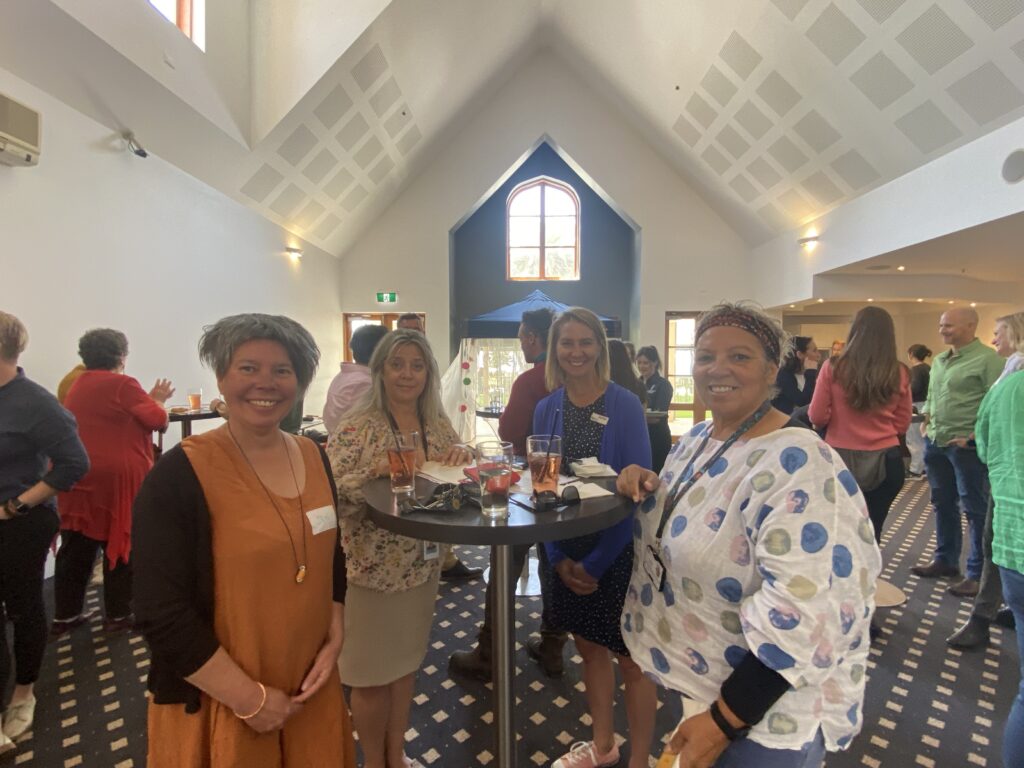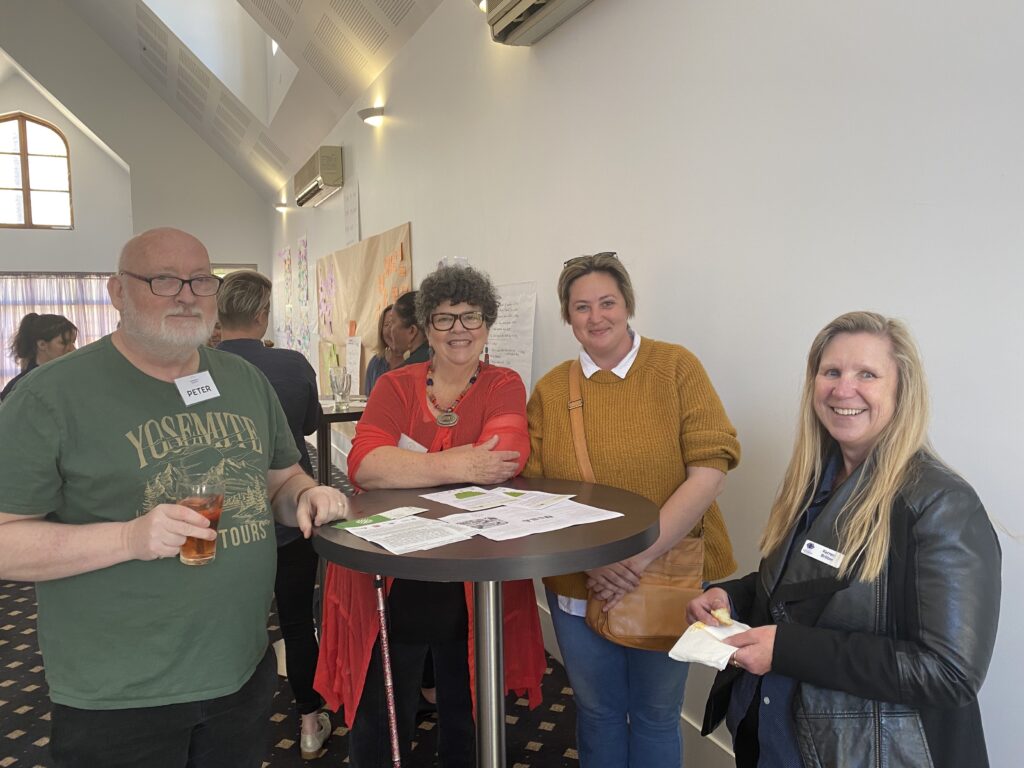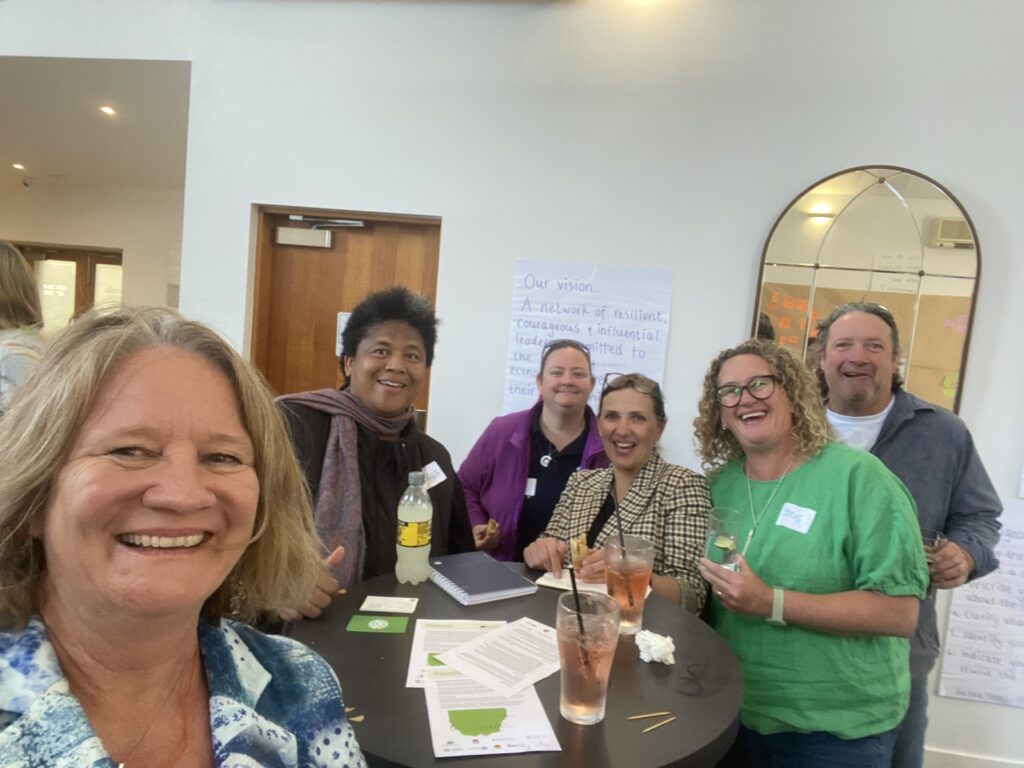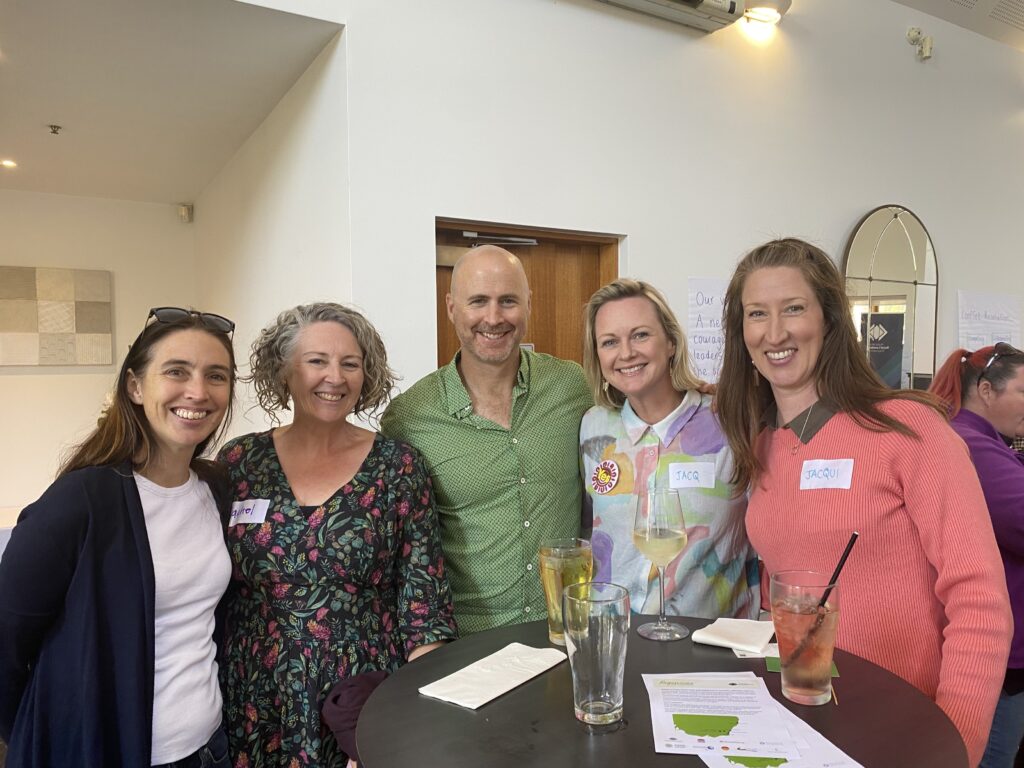Foundation for Rural & Regional Renewal (FRRR)
It has definitely been a busy month for the FRRR team out and about in the community! Below we’ve done a round up of who they met and what they saw!
Our Victoria / South Australia / Tasmania Program Manager, Karly, was lucky enough to attend the Papulu-ku Nyinjjiki (seeing homes) exhibition in Melbourne. The exhibition was hosted by OFFICE, a registered charity working with Dr Simon Quilty, who is undertaking local collaborative impact research to address deficiencies in housing and subsequent poor health outcomes in Tennant Creek. With the help of a $50,000 grant, they were able to finalise the co-design of a culturally appropriate housing model for remote First Nations communities, ready the initial Tennant Creek site for construction, and resume local brick and tile manufacturing. Karly’s pictured with one of the bricks they have made!
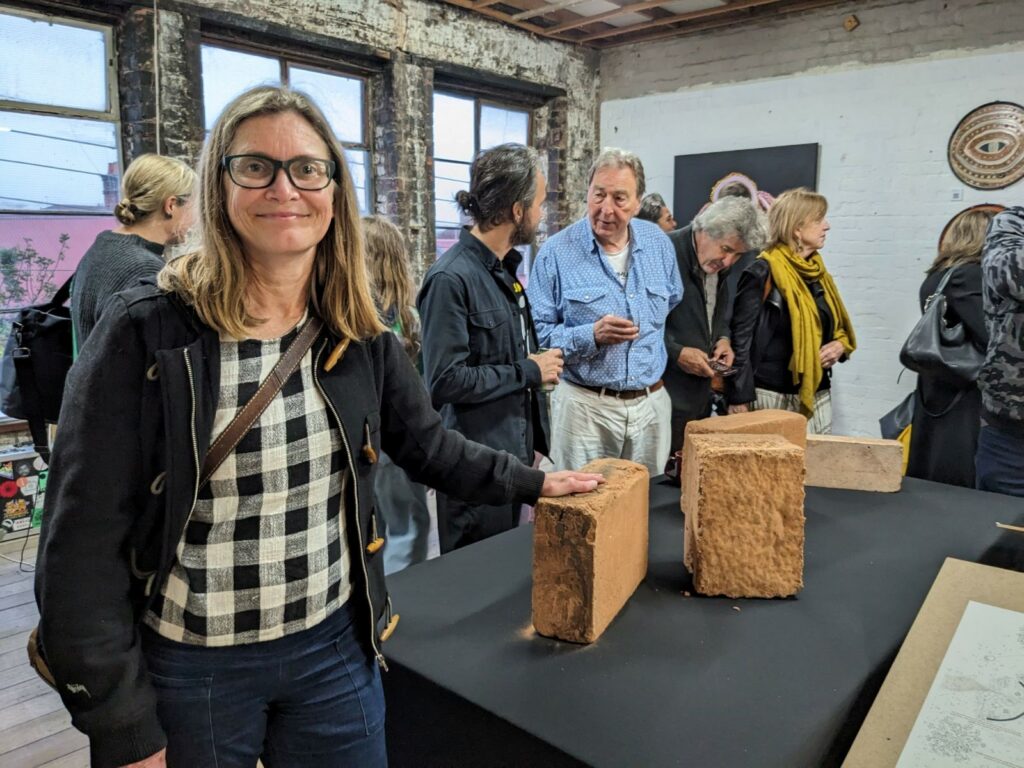
Karly at the Papulu-ki Nyinjjiki exhibition in Melbourne 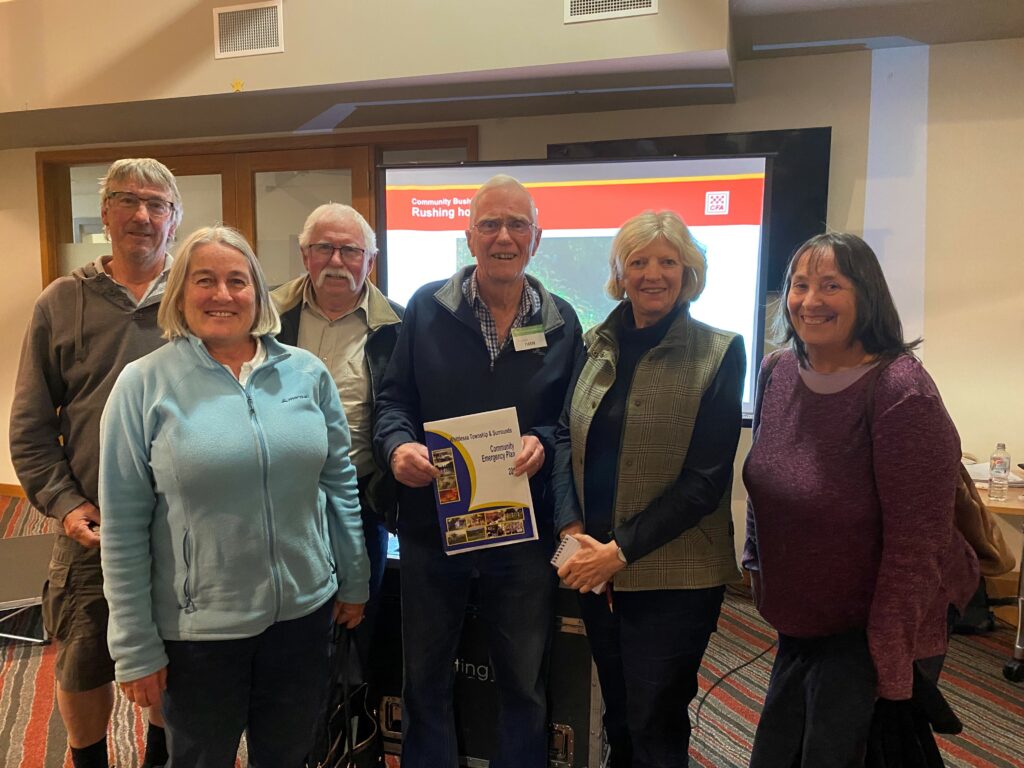
Caroline with the Whittlesea Township Resilience Committee
Caroline, our DR:FR Program Manager, joined residents in Whittlesea and surrounds for an emergency scenario run-through. Caroline tells us that there were more than 200 local residents in attendance, in addition to our DR:FR partners, the Whittlesea Township Community Resilience Committee (CRC). They heard from City of Whittlesea, CFA and others about planning and coordination for a potential bushfire, including for vulnerable people, school children who cannot get home safely and residents with animals. Residents were reminded that unpredictability of bushfires means they need to have an emergency plan and consider what they will do if they get caught out by the location of a fire or a late warning and are unable to safely evacuate.
As part of the Helping Regional Communities Prepare for Drought Small Network Grants promotion, Community Engagement Coordinator Alysia recently completed a WA outreach tour, visiting parts of the Great Southern and Wheatbelt. She met with representatives from local community organisations and dropped in Community Resources Centres and Shires to promote the opportunity in their regions.
The Great Southern was a particular focus area, with grants of up to $50, 000 available for aligned projects centred on building drought preparedness and social resilence. The trip also enabled a catch up with the Community Partner Lead Organisation for Wheatbelt South region, Corrigin Farm Improvement Group, who showcased their town. There were many conversations and deep discussions, with the fantastic weather making it all the more enjoyable. We can’t wait to see the applications from the diverse communities of WA!
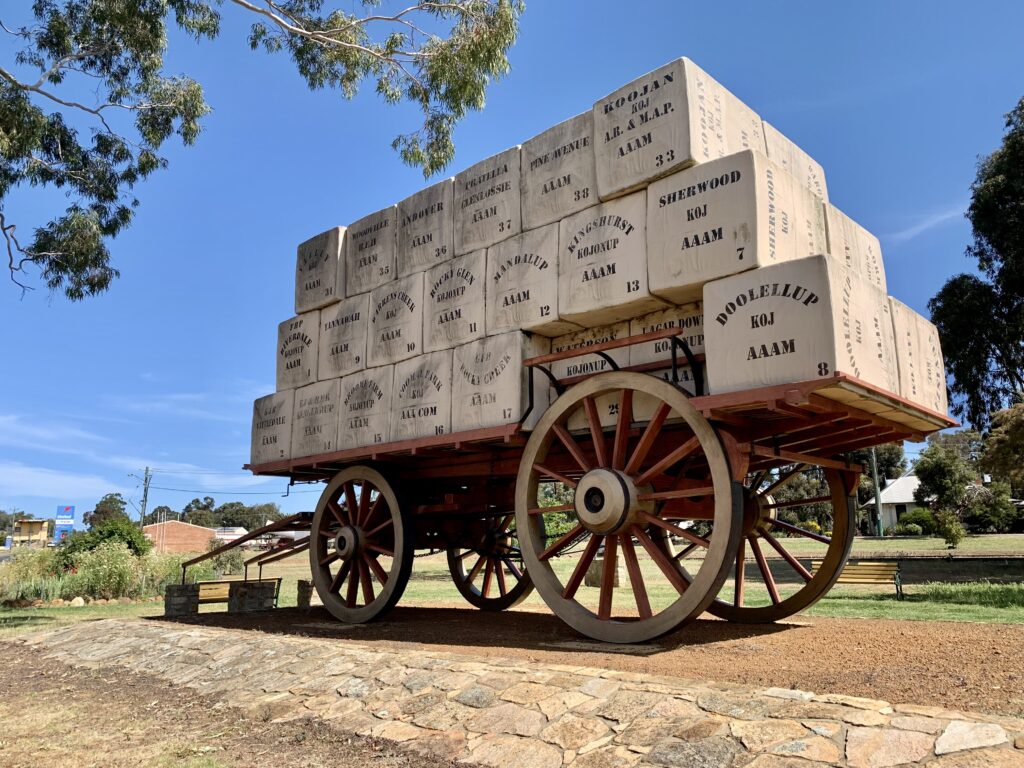
Centenary of Federation Wool Wagon, Kojonup 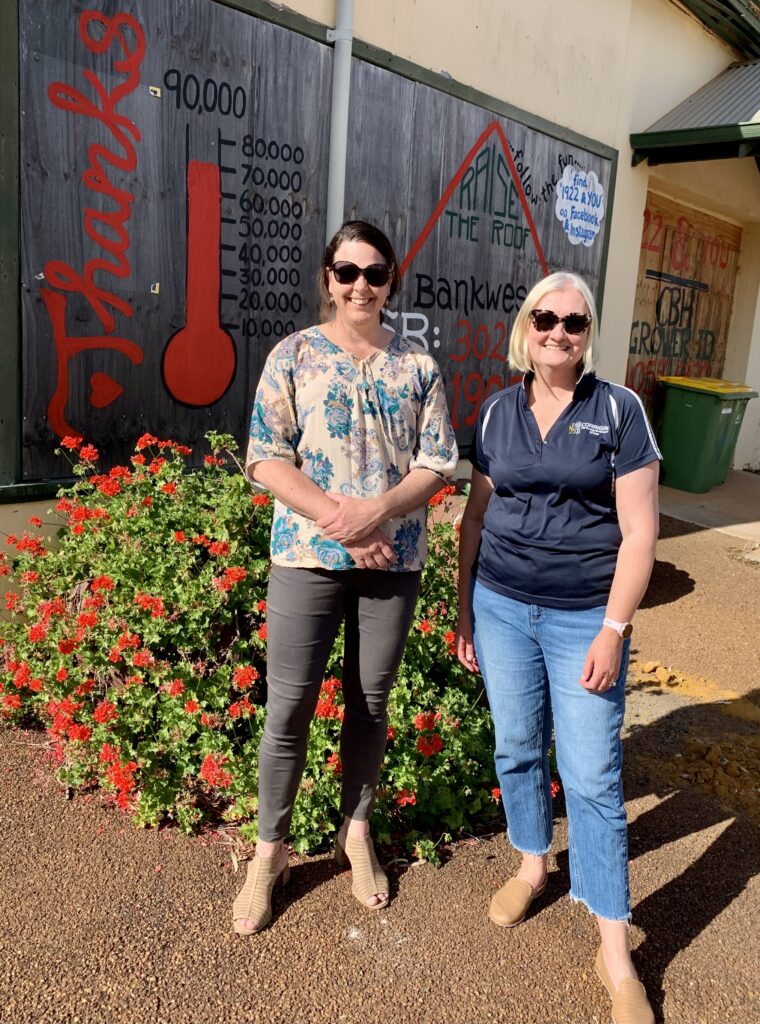
Alysia with CPLO rep Heather Talbot in Corrigin 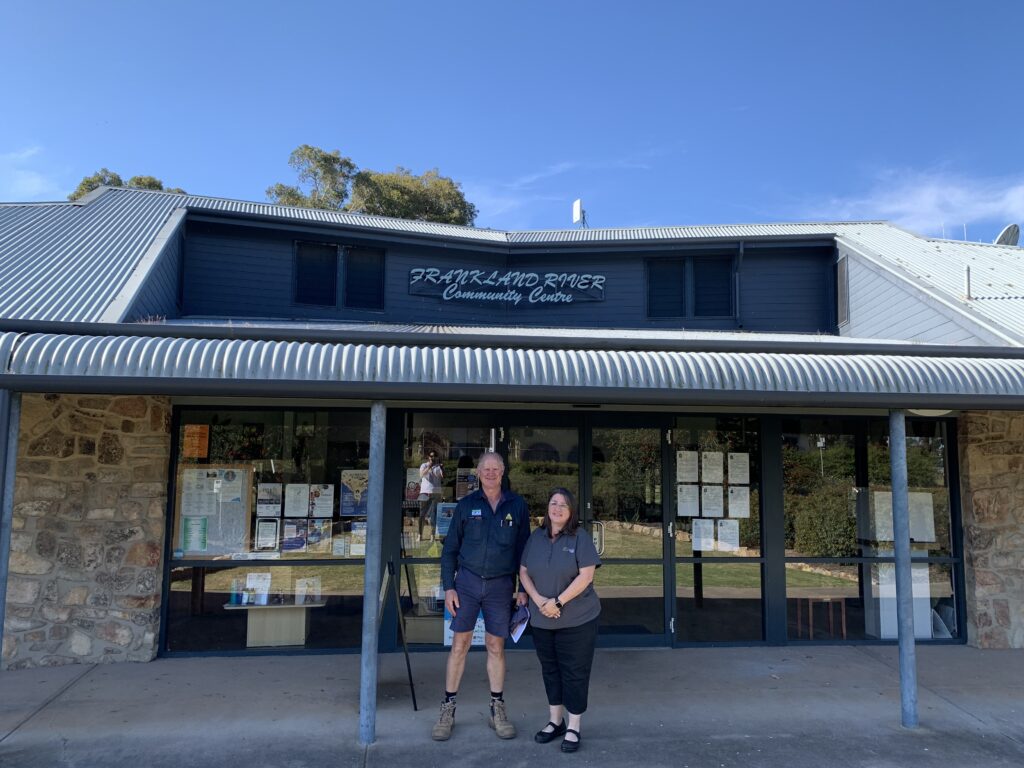
Teresa, Frankland River Community Resource Centre, and Gary, Country Club rep 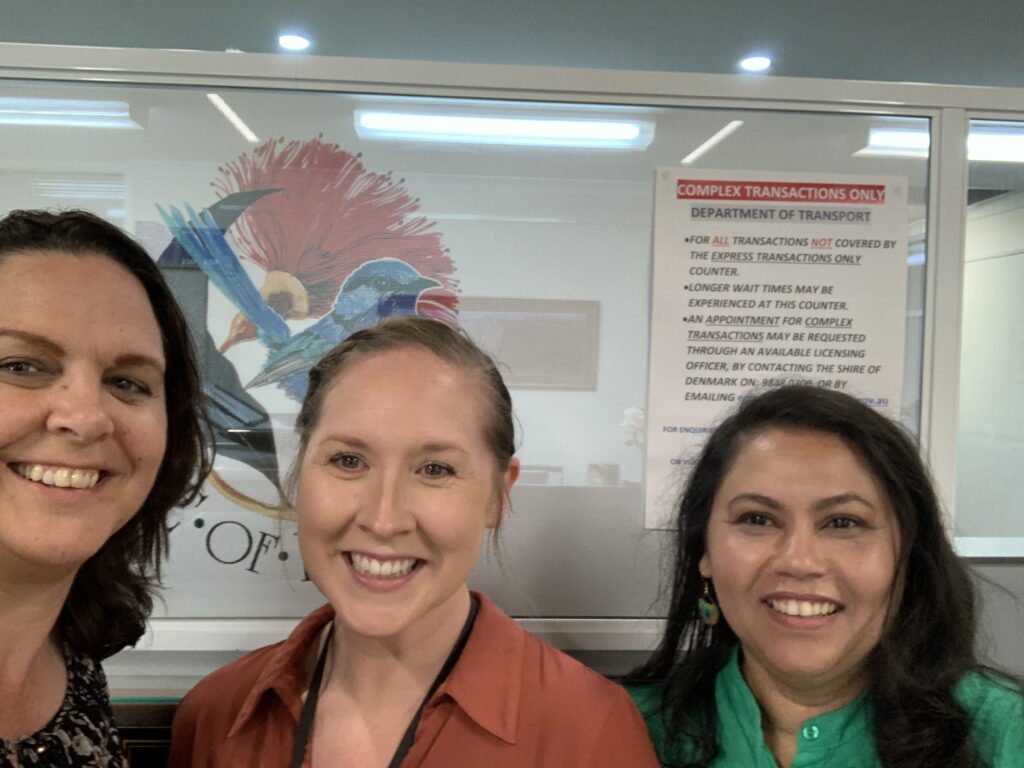
With Shire of Denmark staff
We also had Brooke, our Evaluation Coordinator, and Fee, our Community Engagement Coordinator, travelling north from Bendigo, via Mildura, taking in a few sights along the way but primarily connecting with community groups about the Future Drought Fund’s HRCPD Initiative. The trip was a mix of checking in with those implementing projects through the Community Impact Program and talking about the Small Network Grants program that’s just opened. They began by meeting Shingirai from Food Next Door Co-op. This organisation supports migrants relocating to the Mallee region by offering a space to learn about food production. Food Next Door received funding through CIP to create learning modules to be translated into at least four languages targeting propagation, water-wise food production, tool maintenance and more. The day continued with other community meetings and a bonus of connecting with various organisations at the community co-design session for the Regional Drought Resilience Plan for Wentworth Shire Council.
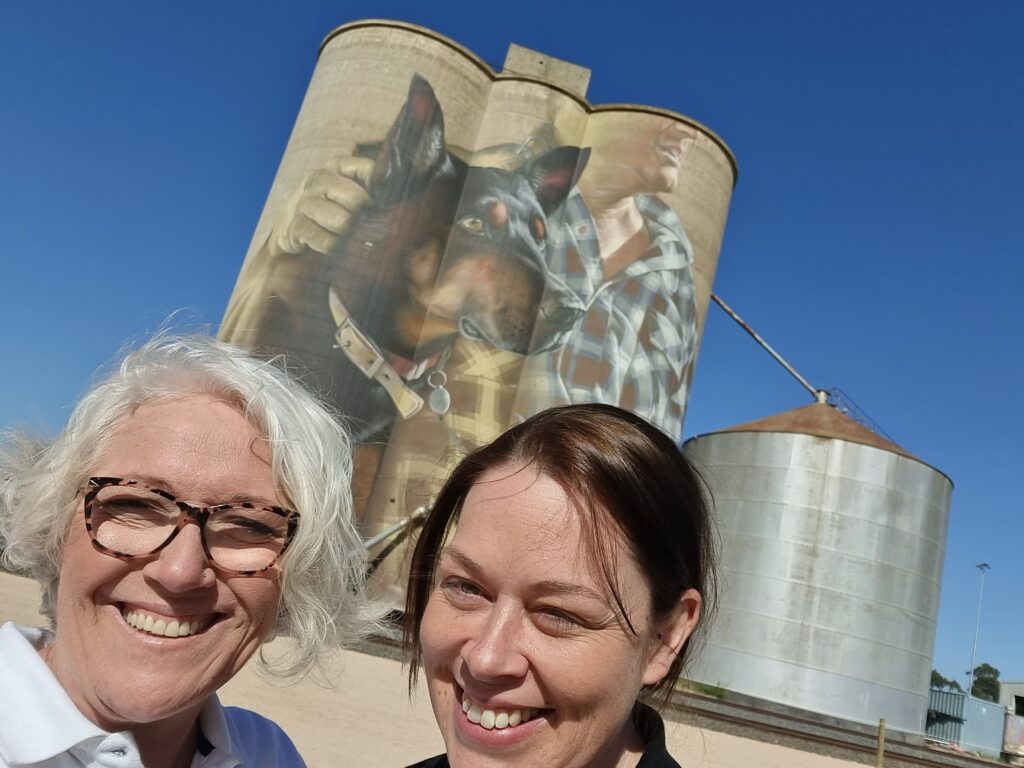
Jimmy the Kelpie, Nullawil Silo Art 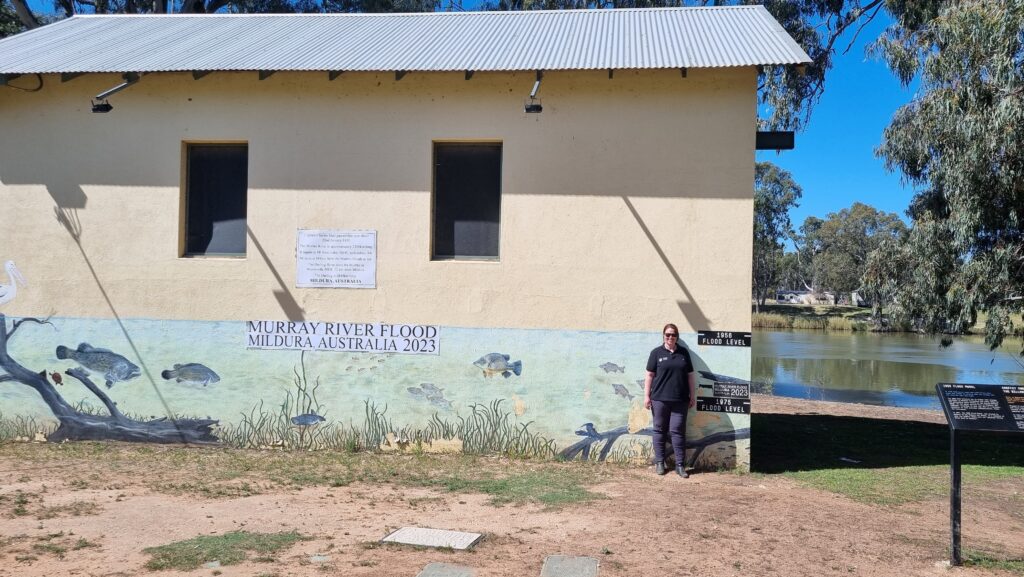
Flood levels by the Murray 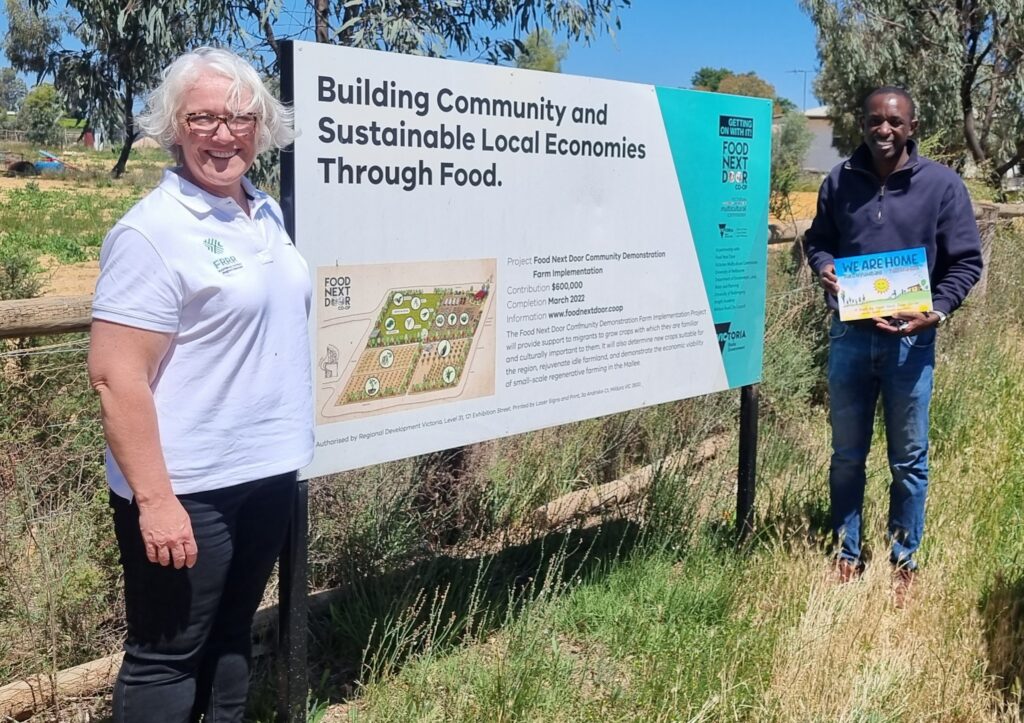
Fee with Shingirai from Food Next Door Co-op in the Mallee region
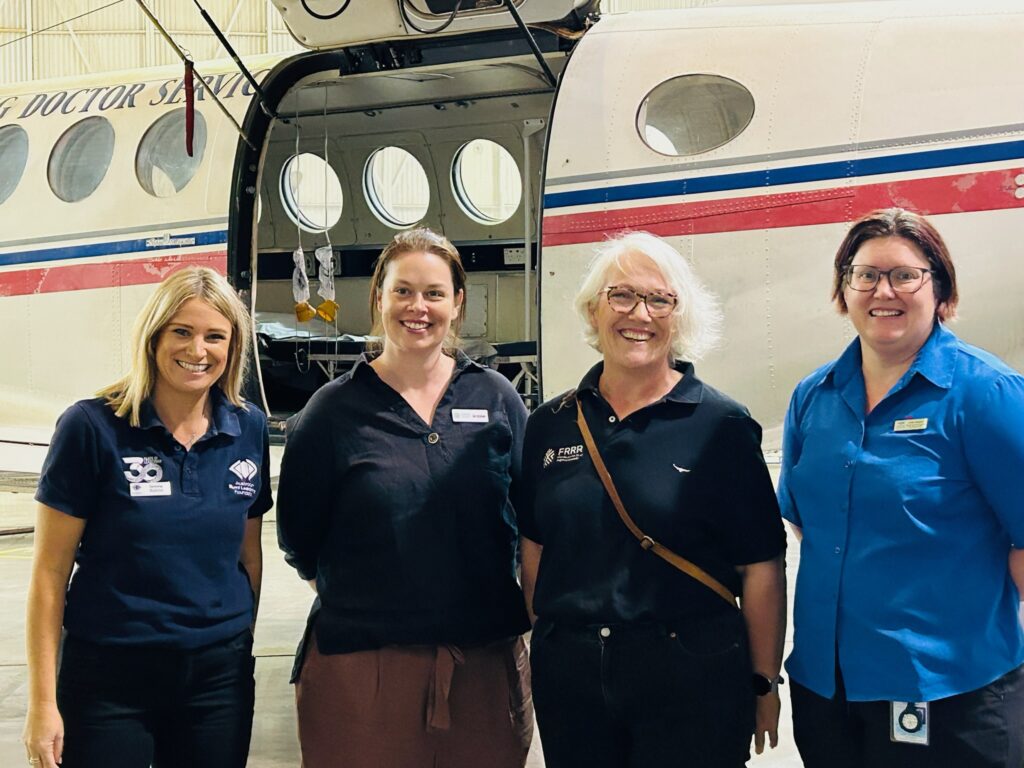
On day two of their trip, Brooke and Fee hit the road early to leave Mildura and get into Broken Hill where they met with Australia Rural Leadership Foundation’s Gemma Rostron to collaboratively share the word about Small Network Grants and continue to promote the leadership opportunities in the HRCPD Change Maker series.
They managed to squeeze in a visit to the Royal Flying Doctor Service (RFDS) Outback Heritage Experience at the tourist centre, and visited the RFDS Wellbeing Centre – a beautiful space with programs and activities like yoga, arts and crafts, connections to services, space for children to play and so much more. They were also lucky enough to connect with Broken Hill Council, Foundation Broken Hill, and ARLF Alumni before some sight seeing in town and heading out to Lake Menindee where they took in the sheer majesty of the stunning region.
The IRCF team has also been busy, connecting virtually with many of the groups that participated in the recent Social Impact in the Regions participants, while other groups have been meeting up at community expos, the most recent of which was in Ulladulla. The team was also out and about in Bega recently, with Carolyn heading to a graduation ceremony for the Regen Leadership Program.
Also in NSW, April and Jac took in Kempsey, Scotts Head, Bellingen and Bowraville in NSW, and caught up with Nancy from the IRCF team. Among the highlights was a visit to the Scott’s Head Community Garden, and seeing it well advanced and productive. They also popped in to the Bowraville Theatre, who shared the challenges of being a volunteer-run theatre, especially during COVID. The team heard how the EFTPOS system and computer FRRR helped them buy has increased not only their takings, but also their members, and increased efficiency.
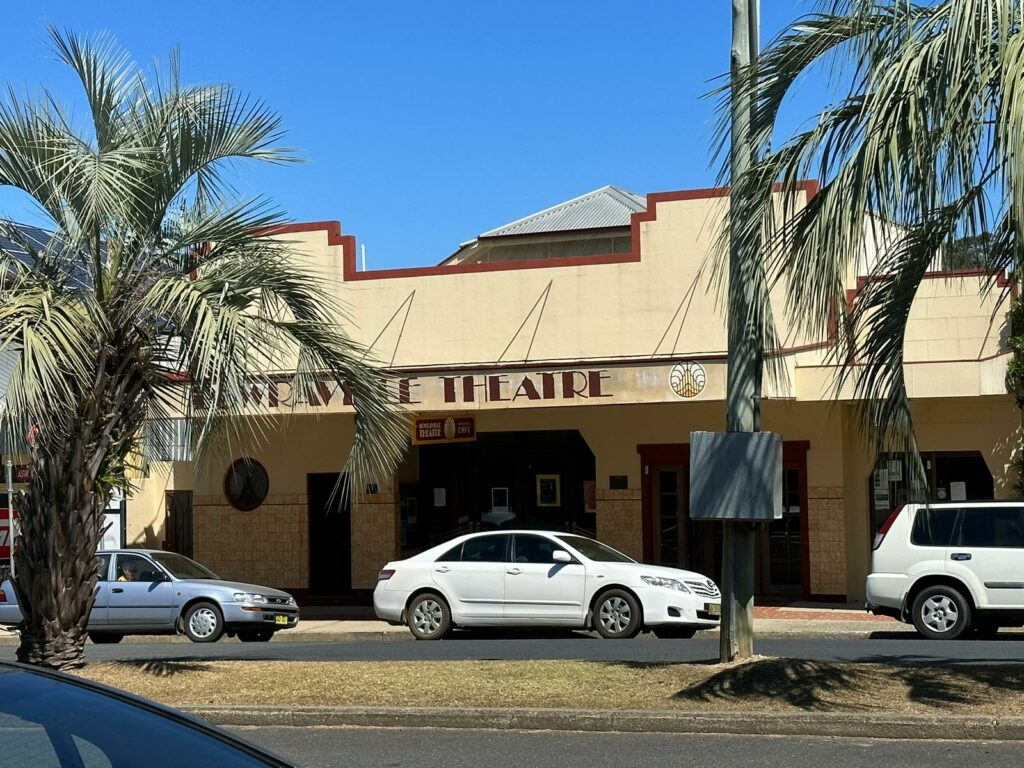
Bowraville Theatre 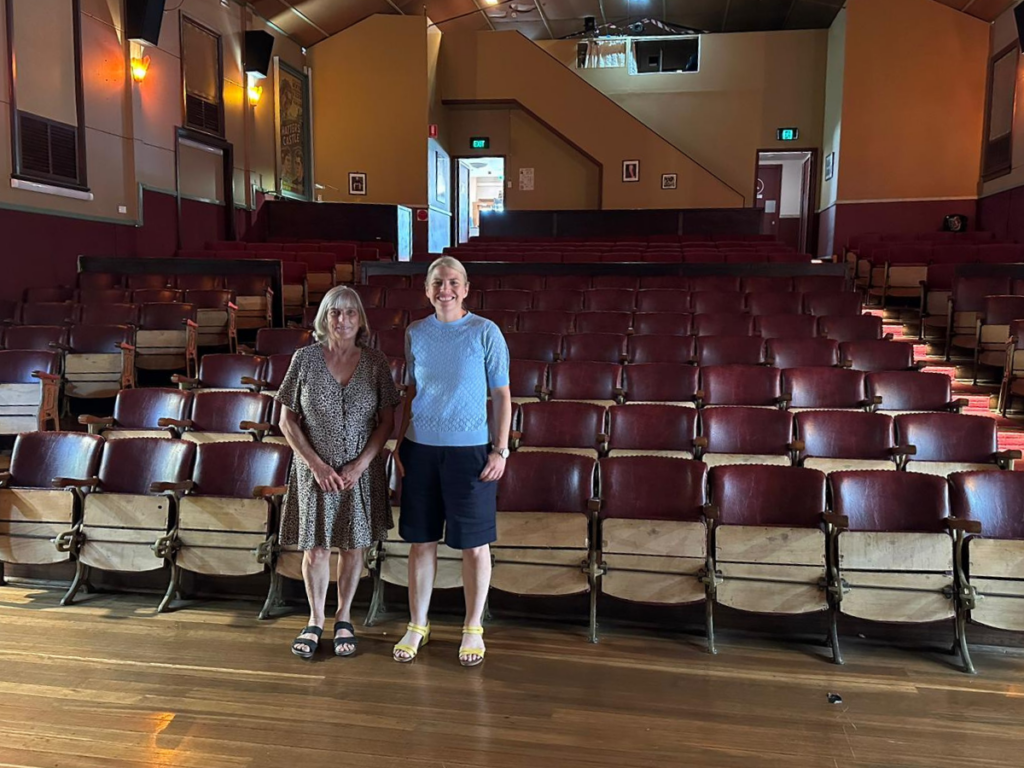
April and Jac admiring the interior of the volunteer-run theatre 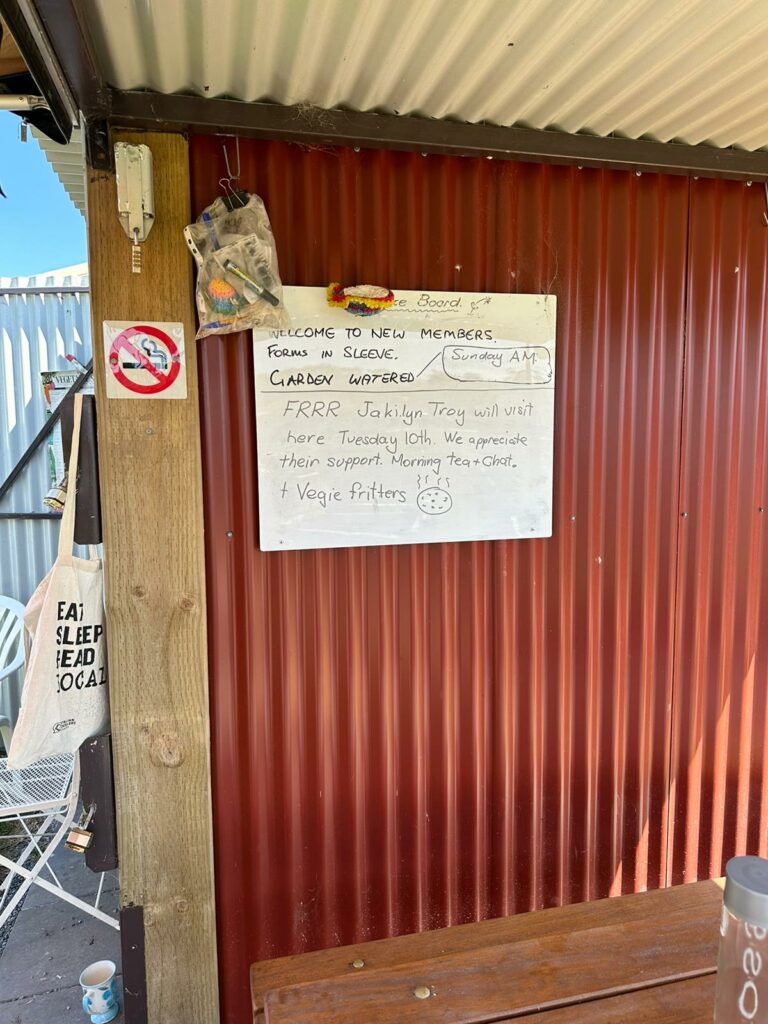
A warm and tasty welcome! 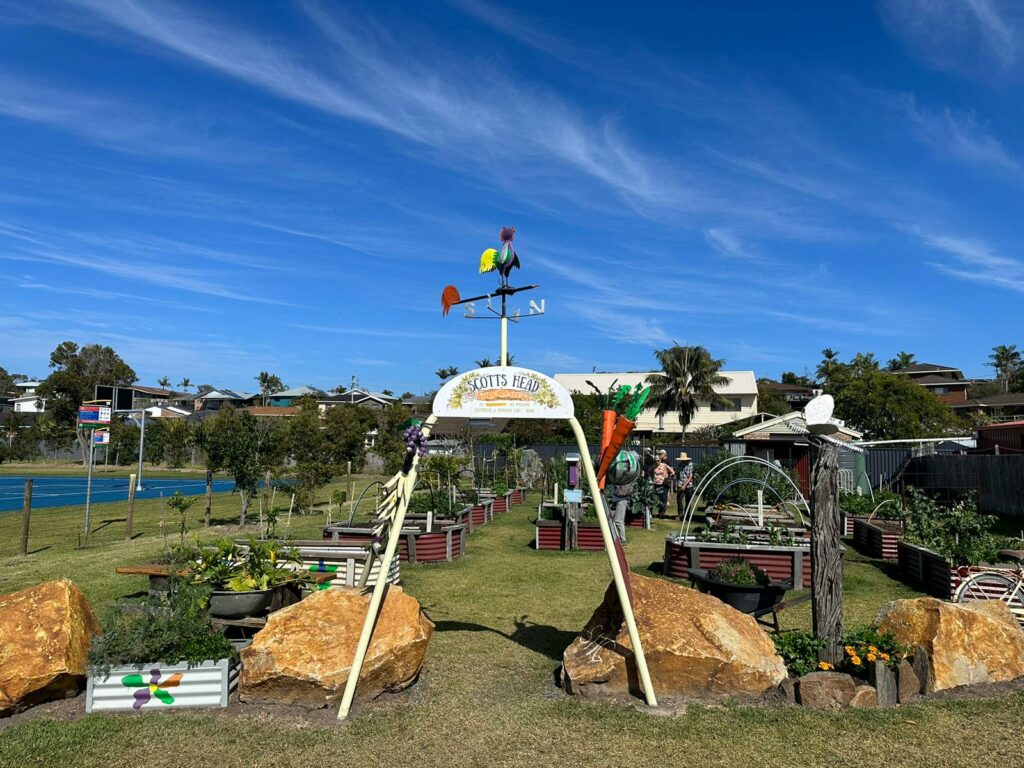
Scott’s Head Community Garden 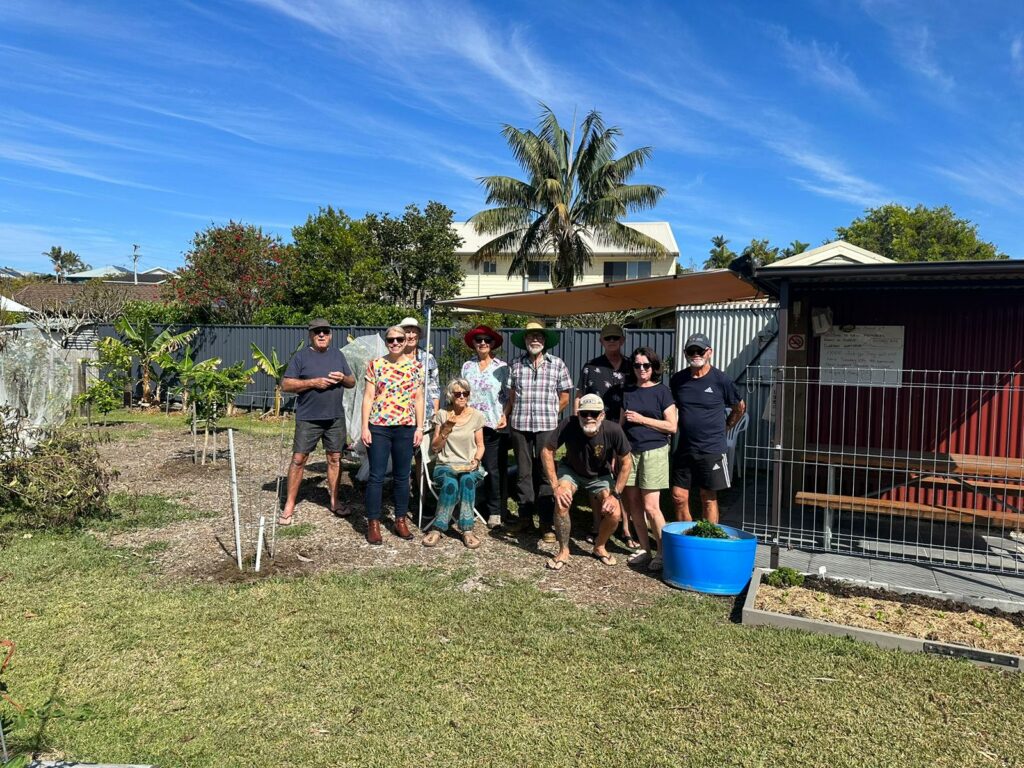
Green thumbs! 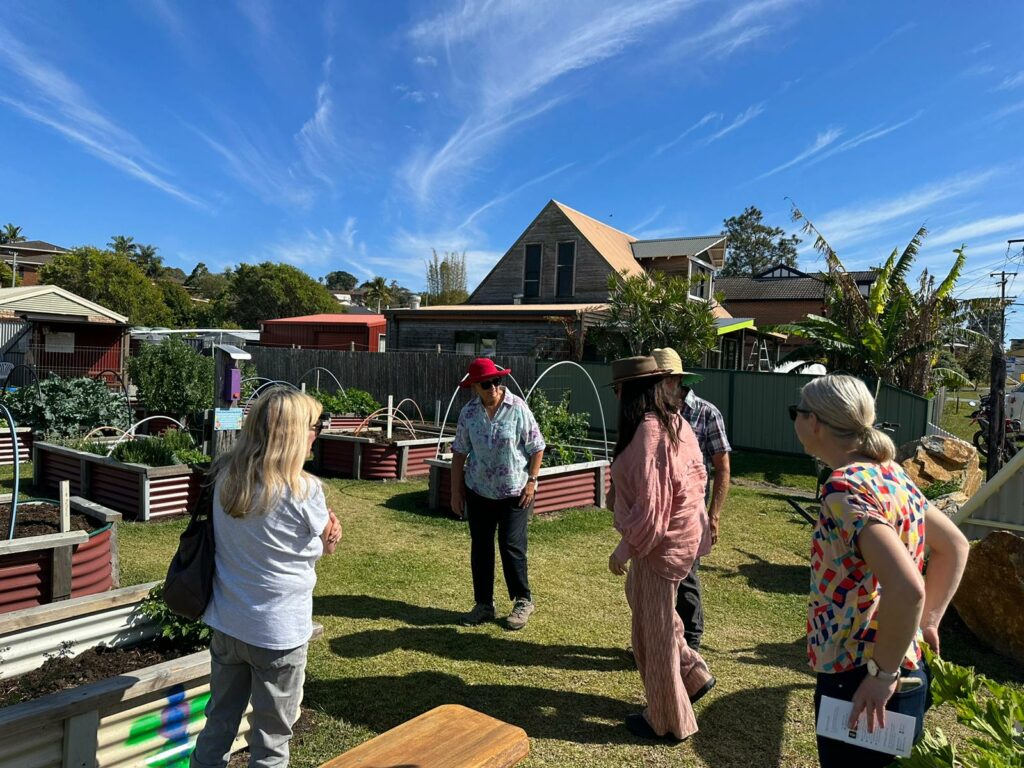
Finally, our Place Programs Lead, Jill, headed to Horsham in Victoria to meet up with our new partners, Nuseed, at their research facility and also managed to catch up with partners from Nutrien Ag Solutions too. Stay tuned for more outreach next month!
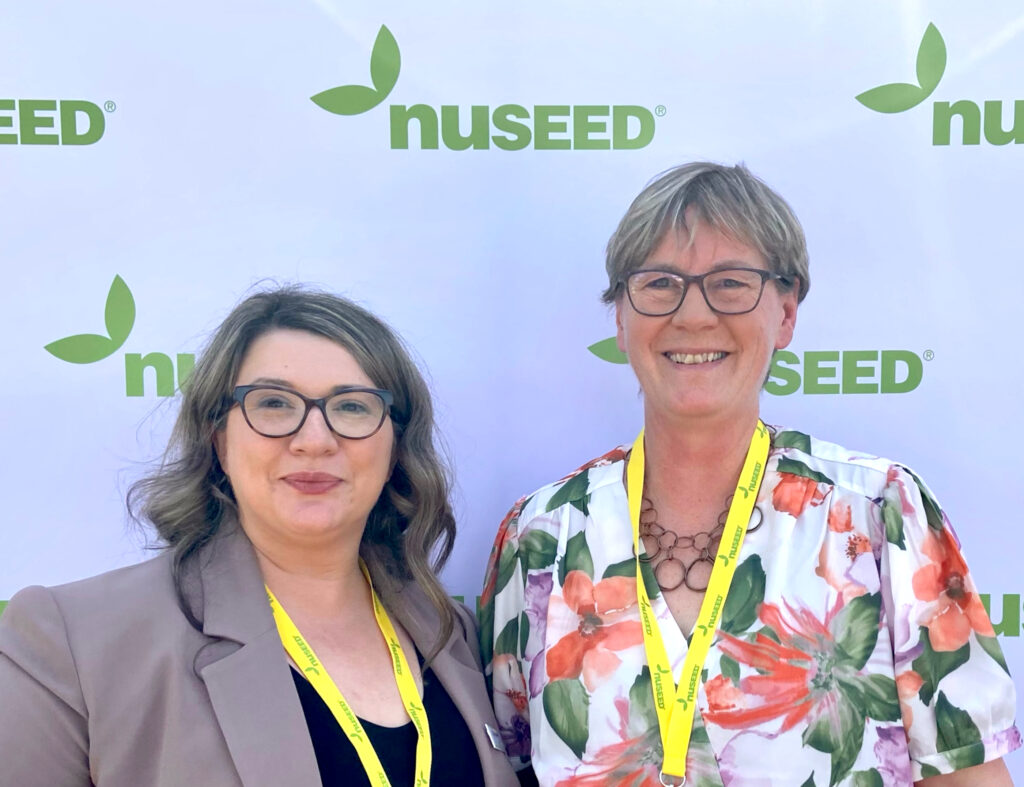
Rachel Palumbo, Nuseed, and Jill Karena, FRRR 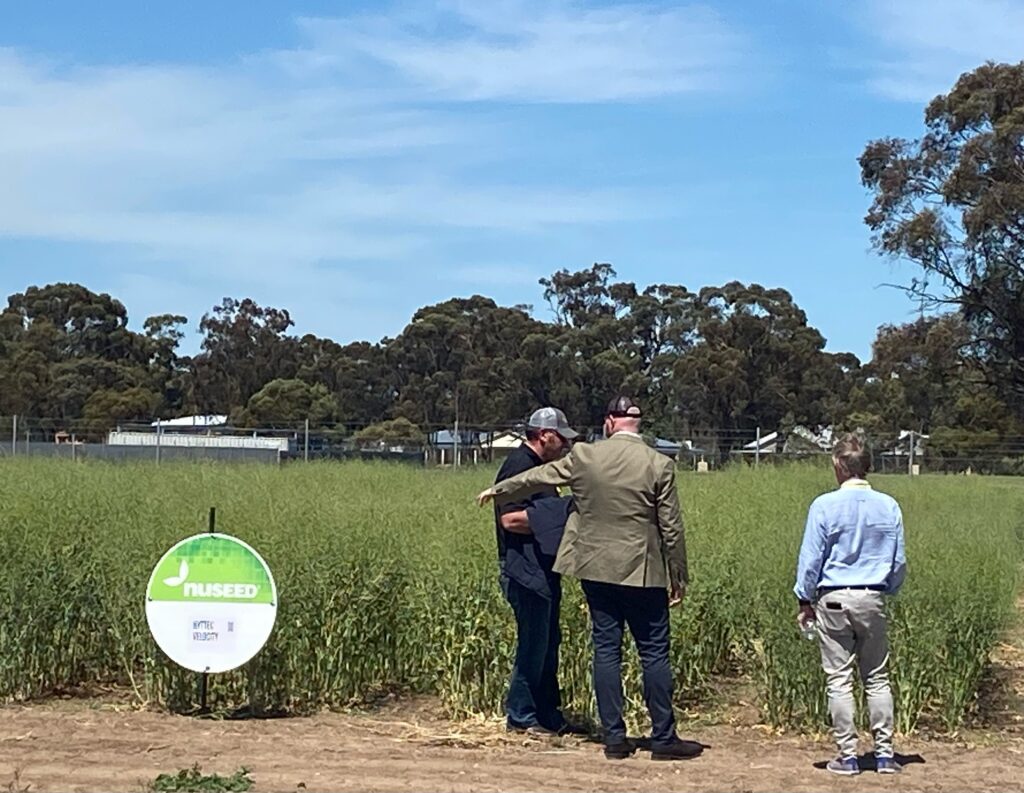
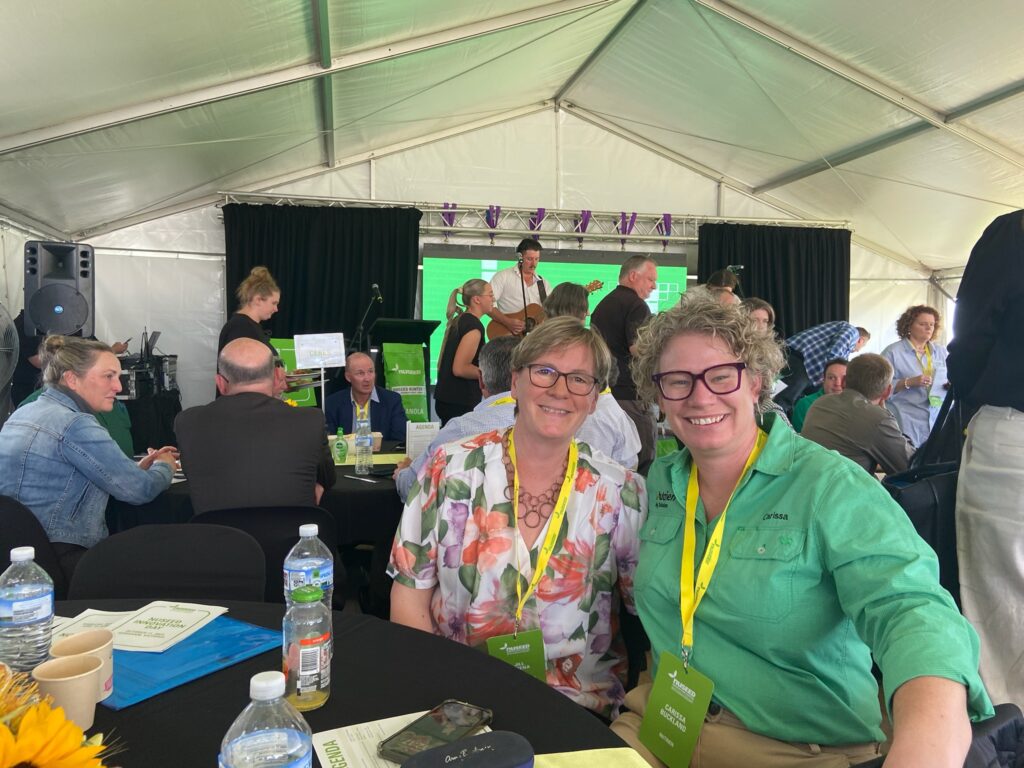
Three regional communities to take part in multi-year initiative
FRRR’s Disaster Resilient: Future Ready (DR:FR) Victorian program continues to build steam, with three regional communities selected to partner with the Foundation to strengthen the resilience and preparedness of their regions.
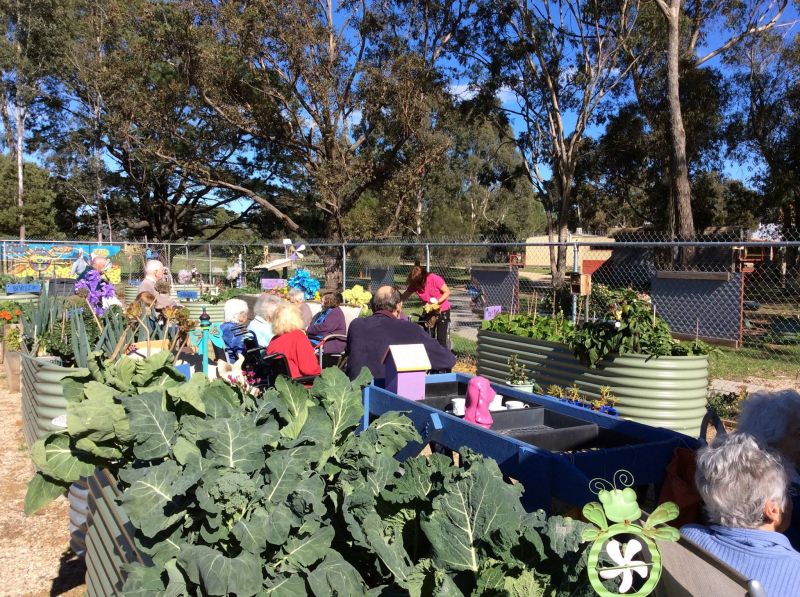
Korumburra, Myrtleford and Whittlesea township and surrounds will receive support as part of a multi-year, community-led program that is supported by a number of philanthropic organisations.
Nina O’Brien, FRRR’s Disaster Resilience and Recovery Lead, said that the DR:FR initiative works to better prepare communities to address the impacts of climate change, natural disasters and broader disruptions that affect the sustainability, vitality and resilience of remote, rural and regional communities across Australia.
“This is a place-based initiative, whereby FRRR works at a hyper-local level with grassroots organisations and community representatives who are interested in collaborating and leading initiatives to increase community preparedness and strengthen resilience capacity.
“The model is designed to help communities identify and then enact solutions that are held in local knowledge and the intersections of people and place. It creates space, facilitates processes, builds relationships and provides resources for community-generated resilience conversations and initiatives to be held at a pace and style that is appropriate for each local community,” Ms O’Brien explained.
Community driven
Late last year community representatives were invited to submit an Expression of Interest (EOI) to become partner communities. Over the past eight months, FRRR’s DR:FR Program coordinator has engaged with representatives from the shortlisted communities, listening and learning about what is unique and important to each place and exploring their readiness, willingness, and capacity to participate in this intensive process.
This process helped FRRR understand their shared aspirations, what they believe is important about their community and demonstrated the commitment and interest in participating in the program.
“The emphasis is on the communities being actively engaged and involved in the process. Our aim is to empower local people to build and adapt the strengths, tools and resources that already exist in each community to further strengthen the resilience and preparedness of each place. It will be community-led and tailored to each community, with support and resources provided to allow them to identify, create and sustain their own resilience-building approaches,” Ms O’Brien said.
The program will start in the next month, beginning with a series of activities to bring interested community members together and start engaging with the broader community around aspirations for the future. In addition to the facilitation support from FRRR, the communities will have access to funding for community activities that support community engagement activities and a seed funding pool to engage a local community connector and activate priority actions identified through the DR:FR journey.
More communities waiting in the wings
“While three communities have been selected, there is strong interest from other places to participate in this program,” Ms O’Brien said.
“We have several communities keen and ready to jump on board and we would love to work with them. Our hope is to expand this program to at least one other Victorian community, and we also have groups in other states wanting to be involved.
“But this requires further funding, so we and our partners can work alongside and support local leaders to create meaningful and lasting change that means they can endure, adapt and evolve from disruptions and disasters more quickly, positively and strongly.
“We are grateful to our current partners for making the Victorian DR:FR program possible. We’d love to hear from others with the capacity to partner with us to expand the program,” Ms O’Brien said.
The DR:FR initiative is kindly supported by the following partners: Sidney Myer Fund, Lord Mayor’s Charitable Foundation, Maple-Brown Family Foundation, Simon Kucher and Partners, Ronald Geoffrey Arnott Foundation, H & L Hecht Trust, Suncorp, Pinnacle Charitable Foundation and the Doc Ross Family Foundation.
For more information about the program, visit https://frrr.org.au/drfr-victoria/.

